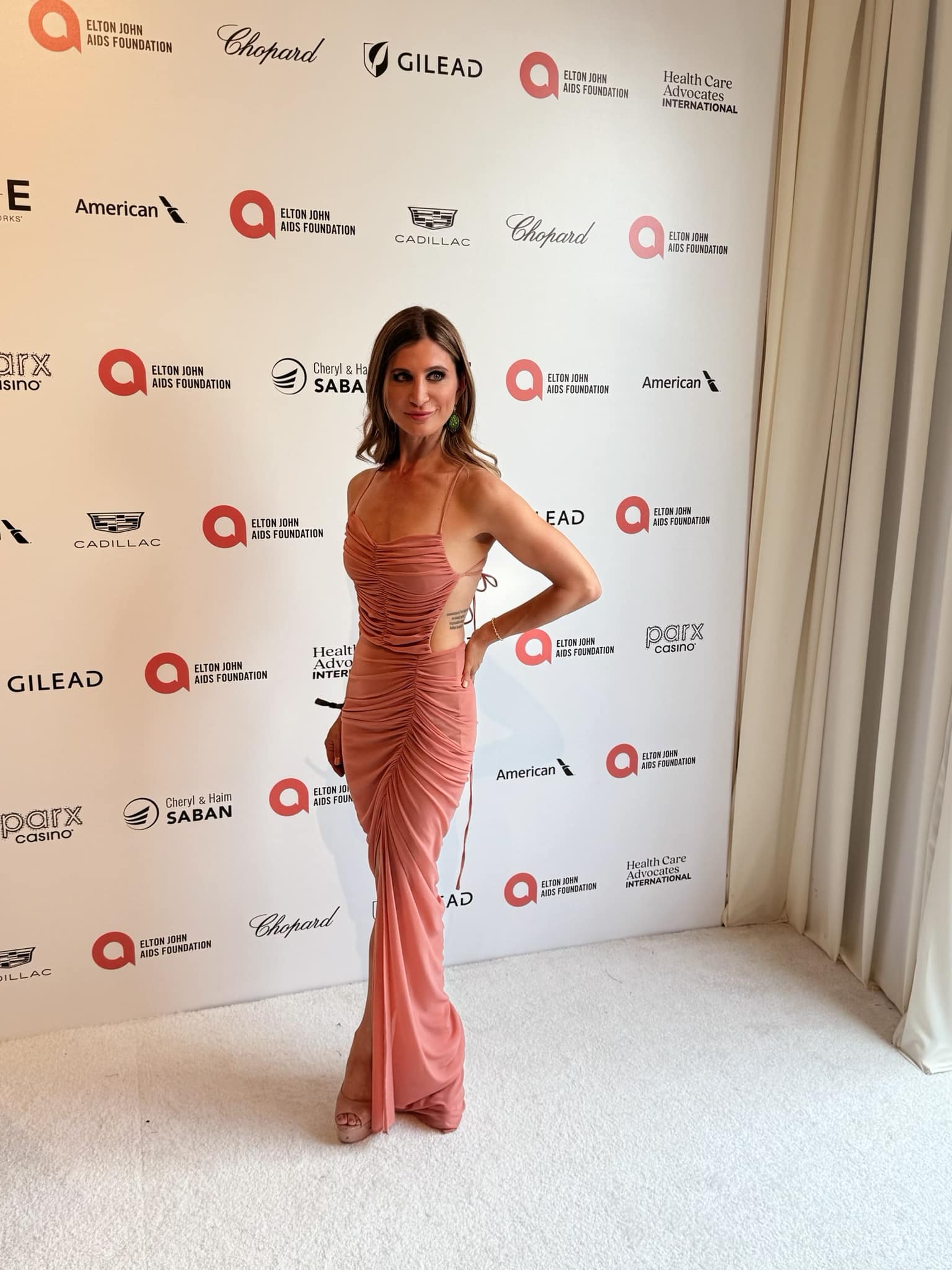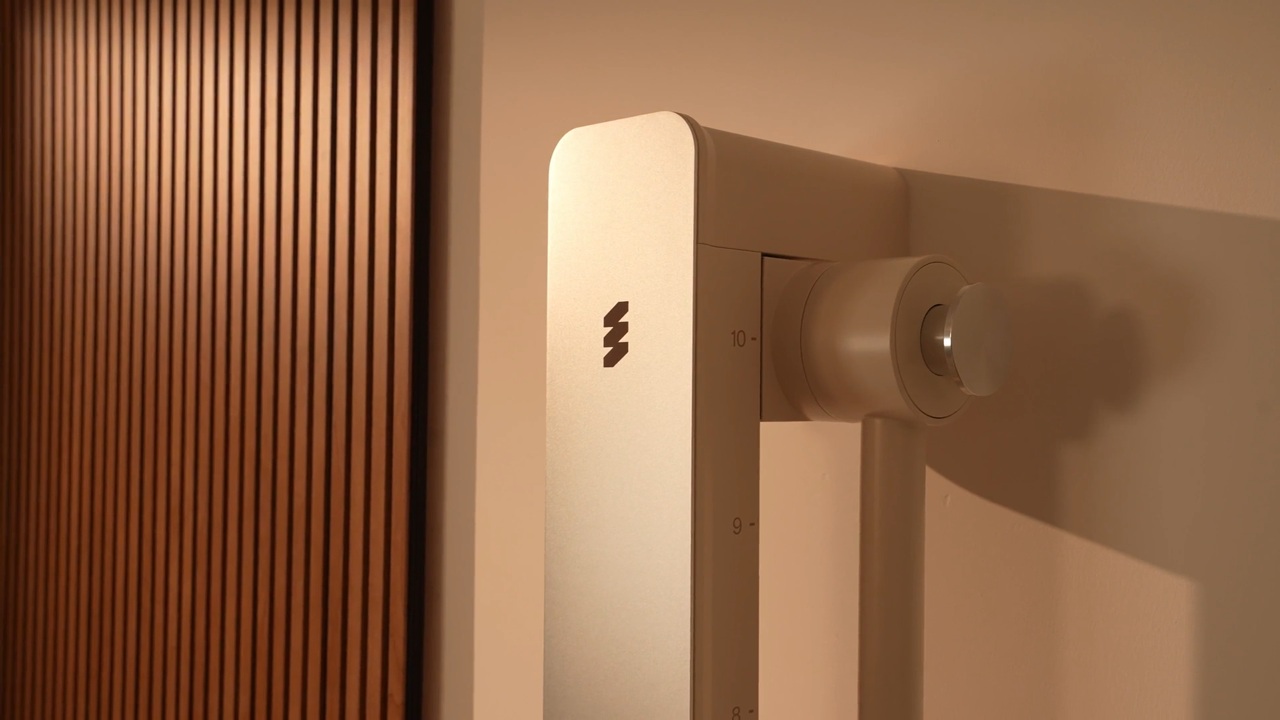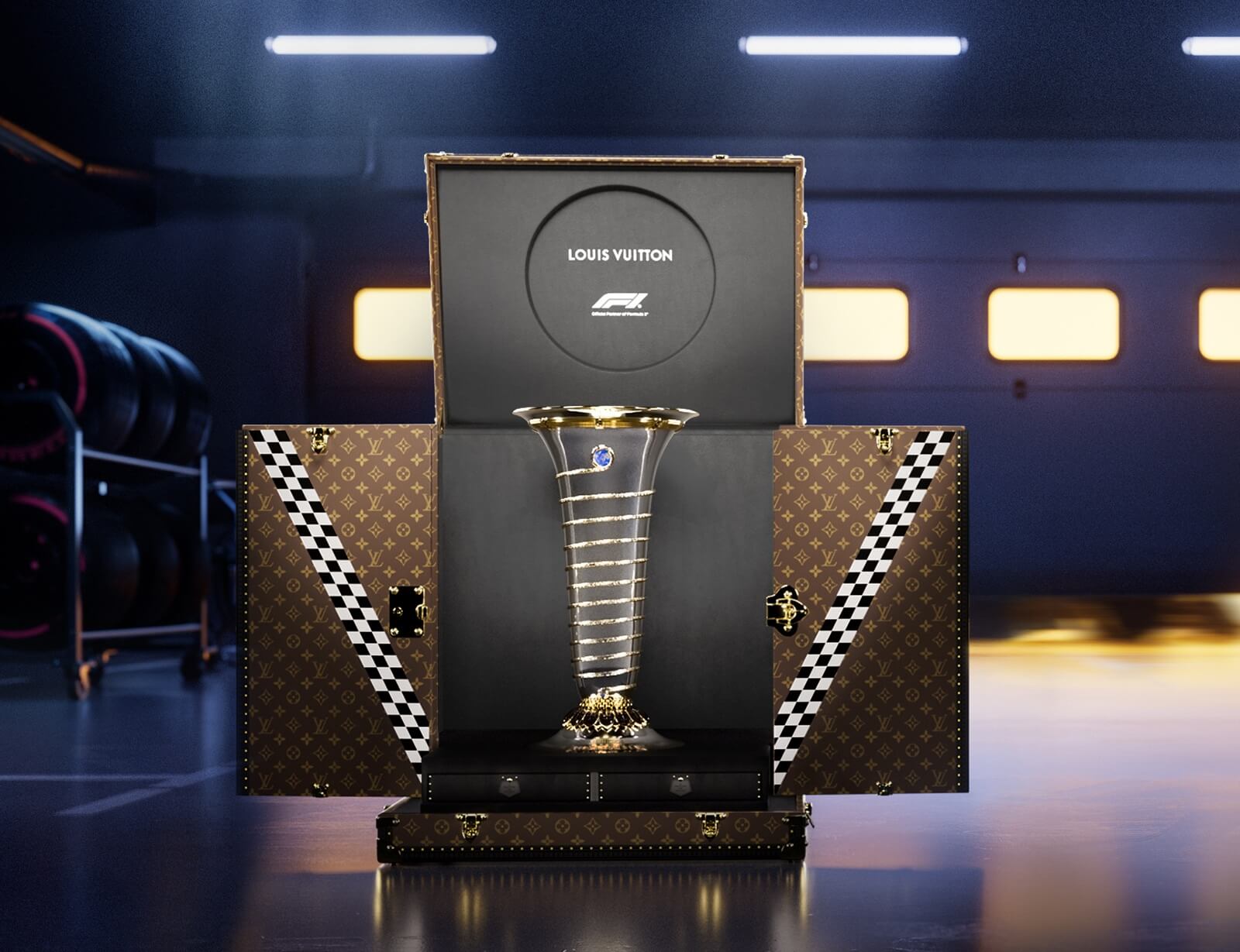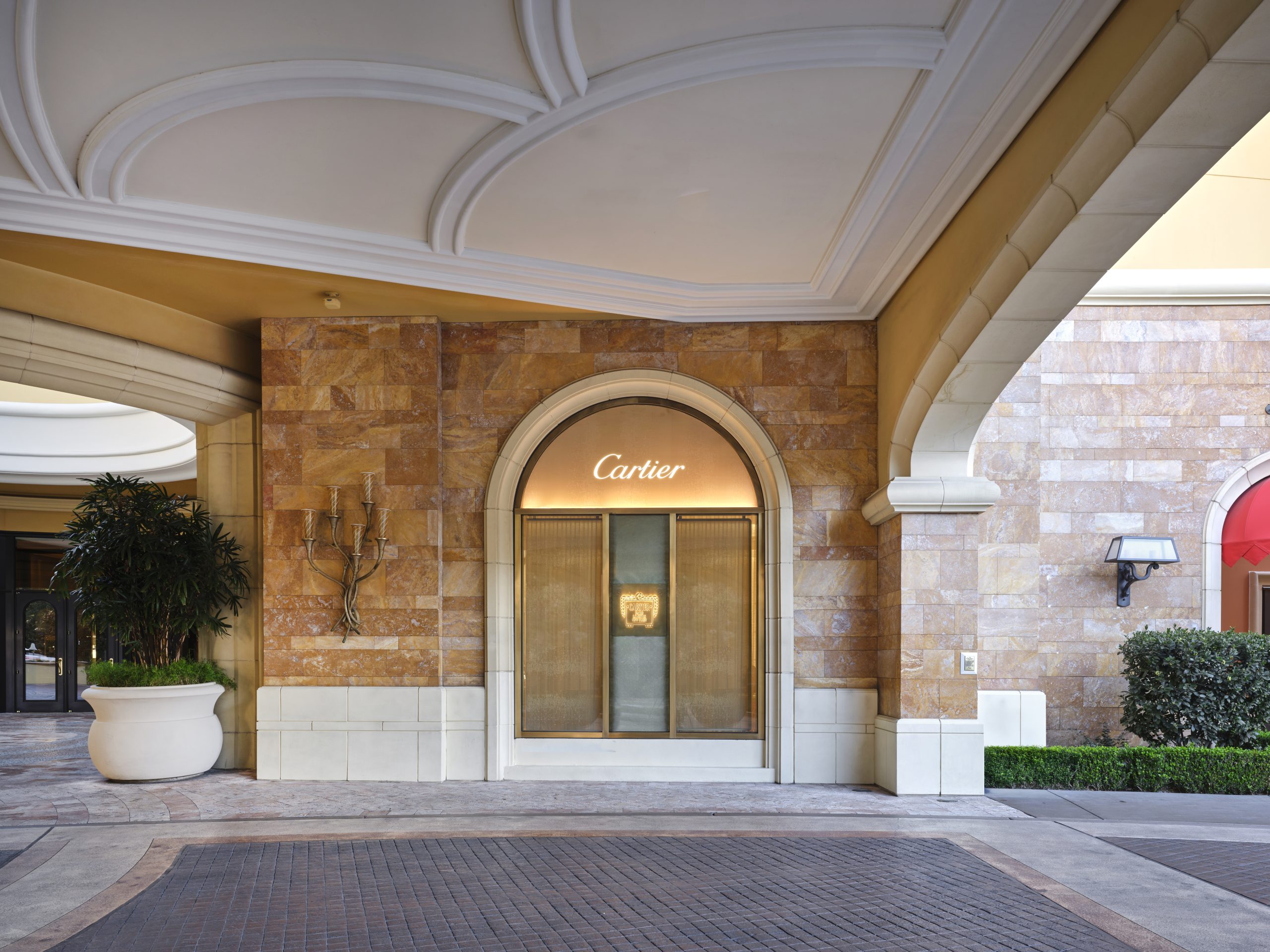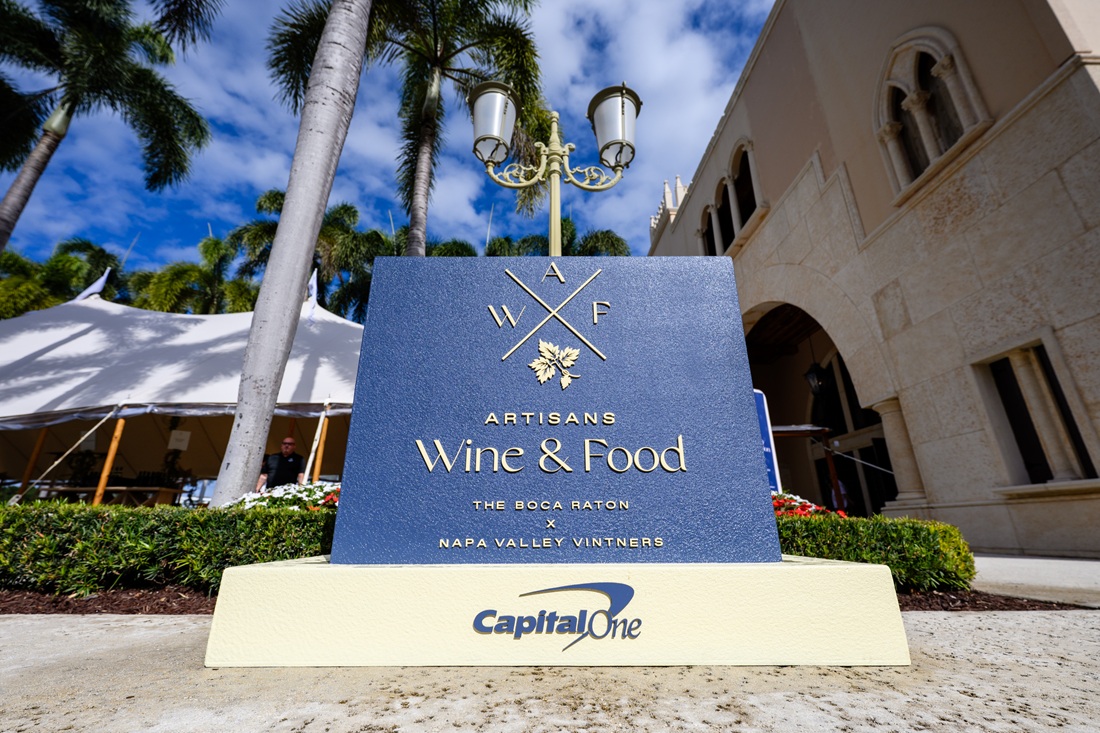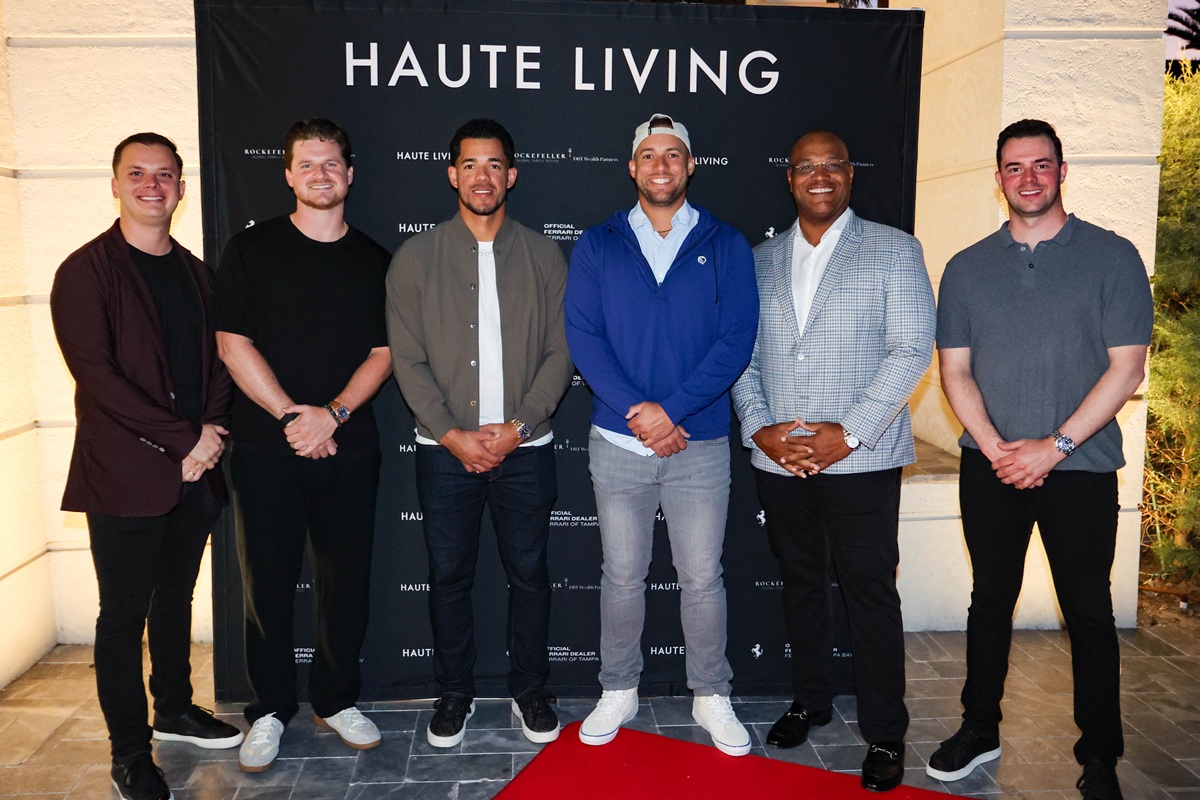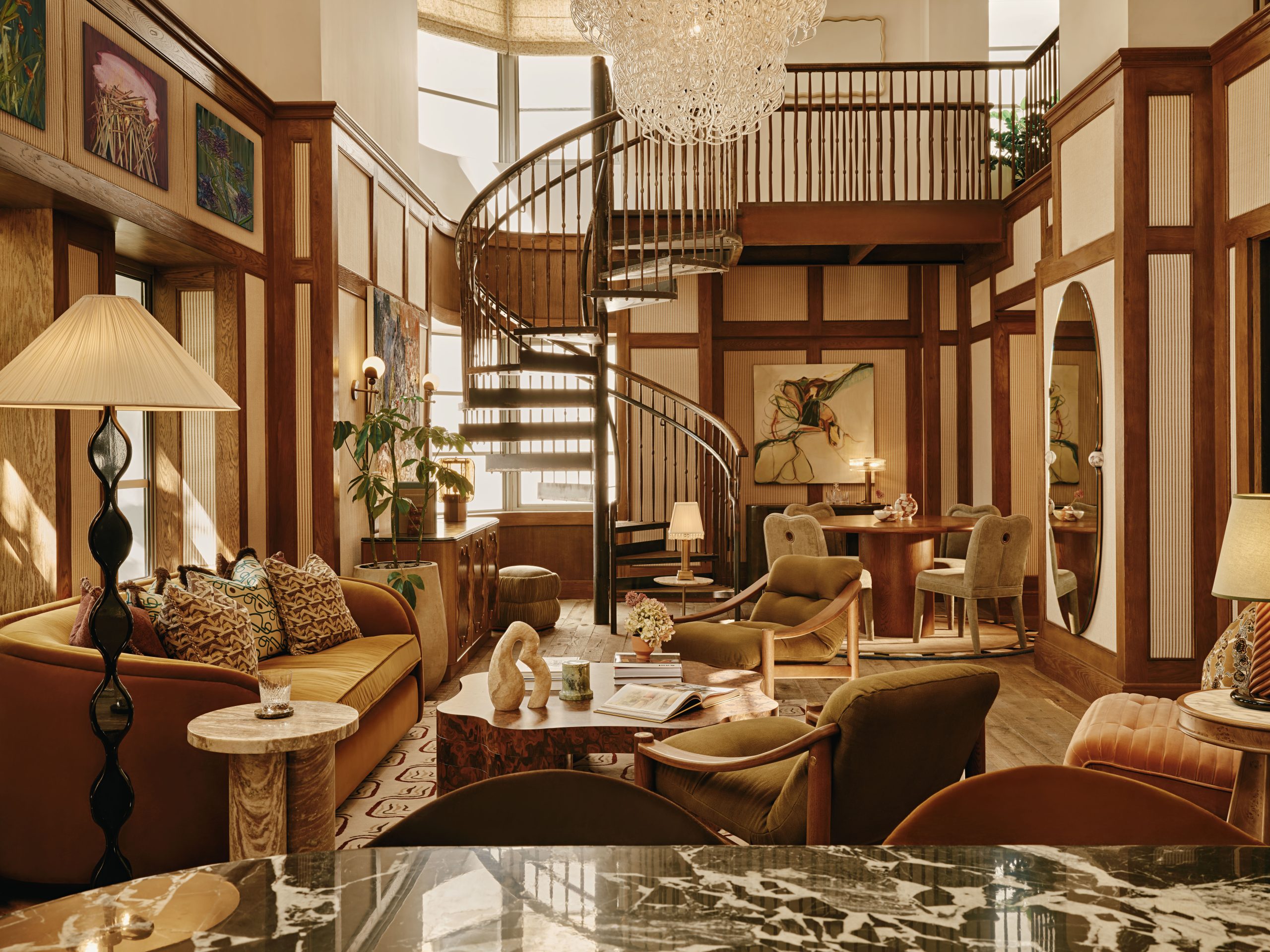Thomas Keller Pays Tribute To Palm Beach’s Golden Era At His Surf Club Restaurant — And On The Golf Course
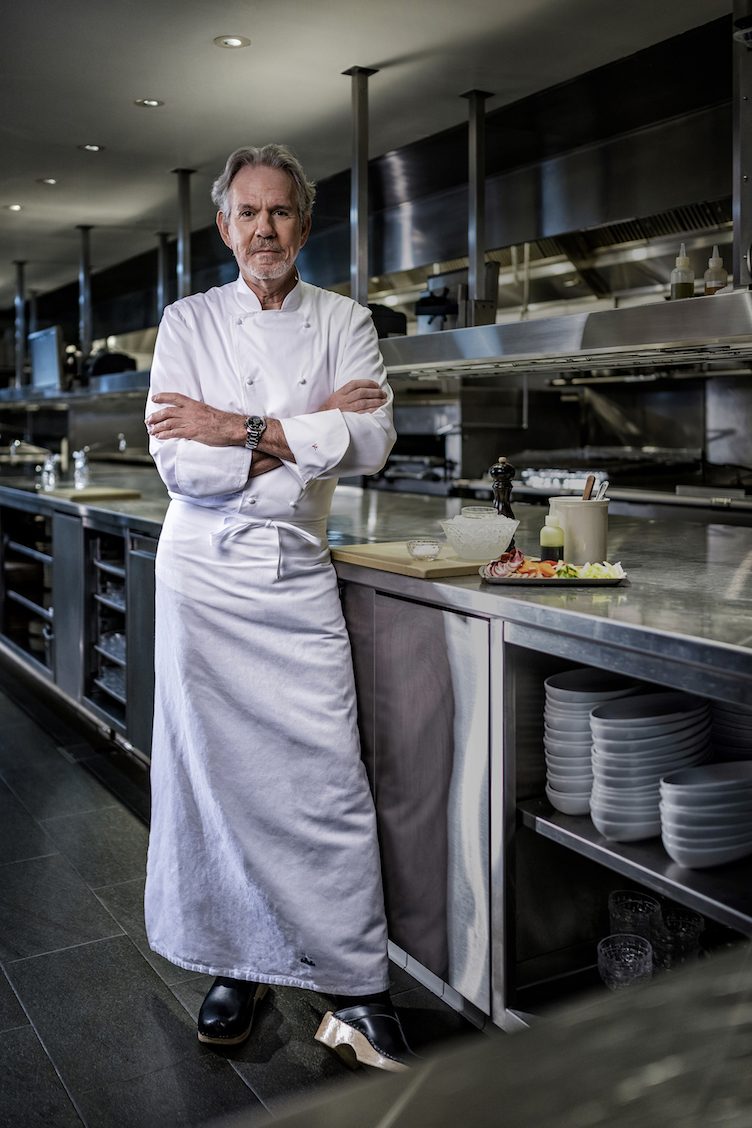 Photo Credit: Nick Garcia
Photo Credit: Nick Garcia
BY LAURA SCHREFFLER
PHOTOGRAPHY NICK GARCIA
GROOMING LESLIE MUNSELL
SHOT ON LOCATION AT THE SURF CLUB RESTAURANT, MIAMI
As one of the world’s most successful chefs and restaurateurs, Thomas Keller is, as can be expected, big on implementing systems and sticking to routines — even when he’s having fun. Take, for example, his golfing strategy: Any round played before 10 a.m. must, must, must start with his Frank Sinatra soundtrack. [And if you’re wondering, sadly, the answer is no — he does not use his driver as a microphone. Sad face.]
“The Big Band era was something that I just loved. I love horns, so some of those riffs and sections on Frank’s songs just make my skin tingle,” the 66-year-old — who happens to be the only American-born chef to hold multiple three-star ratings from the prestigious Michelin Guide — shares during our mid-February Zoom call.
In fact, Ol’ Blue Eyes has been a leitmotif throughout much of his life. Frank provided the soundtrack to his youth, keeping Keller company when he was just a kid washing dishes at the Palm Beach Yacht Club, his mother’s West Palm Beach restaurant. And Sinatra also had a hand in his decision to return to Florida 20 years later to open a restaurant of his own, the glamorous gourmet Surf Club Restaurant where Frank was known to frolic in his heyday.
Keller takes me back in time to how it all — “all” being his joy of cooking — began: “My mother ran restaurants and worked nights, so after school, my brother Joseph and I would head to her so she could keep an eye on us, and we would help in any way we could. My brother was older, so he had more opportunities with the cooks, and I got to wash dishes, which was fine. It didn’t matter; it kept me busy.”
His mom, Betty, eventually hired him as a cook, and he, in turn, brought on one of his best friends, who had even less of a clue on what to do in the kitchen than he did. “We didn’t know how to cook anything other than Hamburger Helper, which is what we ate normally. But my brother, who had some skill in the kitchen and wanted to be a chef from a young age, guided me through the process of learning how to cook the fundamental things that the clientele at the Palm Beach Yacht Club wanted to eat. They would normally eat omelets, something I got good at, hamburgers — which I also got really good at — and grilled flank steak, sautéed au jus. It was my introduction to cooking but also running a kitchen. There were only three of us, and we would order things, inventory things, accept things, prepare things. We were not only responsible for the kitchen, but also for the restaurant; it was part of our daily ritual. We would cross the bridge — we lived right across the way in Palm Beach — and vacuum floors and clean the bathrooms — before starting our daily food prep. And I will say, it sparked in me this interest of being in the kitchen, though not necessarily becoming a professional chef.” Keller left Florida in 1976 and headed to Newport, Rhode Island, for the summer, but returned to Florida when the temperatures dropped in the Northeast. He loved the idea of being a nomad, going wherever the tide took him. “Cooking was not necessarily a career for me at that point, but it was a way of working in different locations. I realized that, as a cook, I could get a job in any location I wanted to,” he recalls.
When he headed back to the Ocean State in 1977, it was still with the intention of being a boy who just wanted to have fun. He still wasn’t sure what his career path would be until midsummer when he shifted from beach, party, repeat on Bannister’s Wharf to working for then-boss, French-born master chef Roland Henin, in the genteel seaside town of Narragansett.
His path and purpose then aligned with one very targeted question that Henin asked him: “Why do cooks cook?”
“I couldn’t really answer the question,” Keller admits now. “I fumbled with some stupid answer, so he answered for me. He said, ‘We cook to nurture people.’ That moment changed my life because I realized I was a nurturer. I realized, What better way to give to someone than to nourish and nurture them at the same time? So, I decided to become a professional chef, and because the chef I was working for at the time was French, I decided that French food was going to be my métier.”
So, in1983, he moved to Paris, where he apprenticed for various Michelin-star restaurants, including Taillevent and Chiberta, returning to the U.S. a year later, much wiser and with a more expansive repertoire. He opened his first restaurant, Rakel, in New York in 1986 before relocating to California; purchased The French Laundry in Yountville in 1994; opened his French bistro, Bouchon, in 1998; Bouchon Bakery in 2003; and Per Se in New York a year later. Since then, Keller has opened an outpost of Bouchon and Bouchon Bakery in Las Vegas and the Middle East, and has added Ad Hoc + Addendum as well as Mexican eatery La Calenda to his culinary roster. One of the most recent to open brings us to the reason for today’s interview: Surfside’s The Surf Club Restaurant.
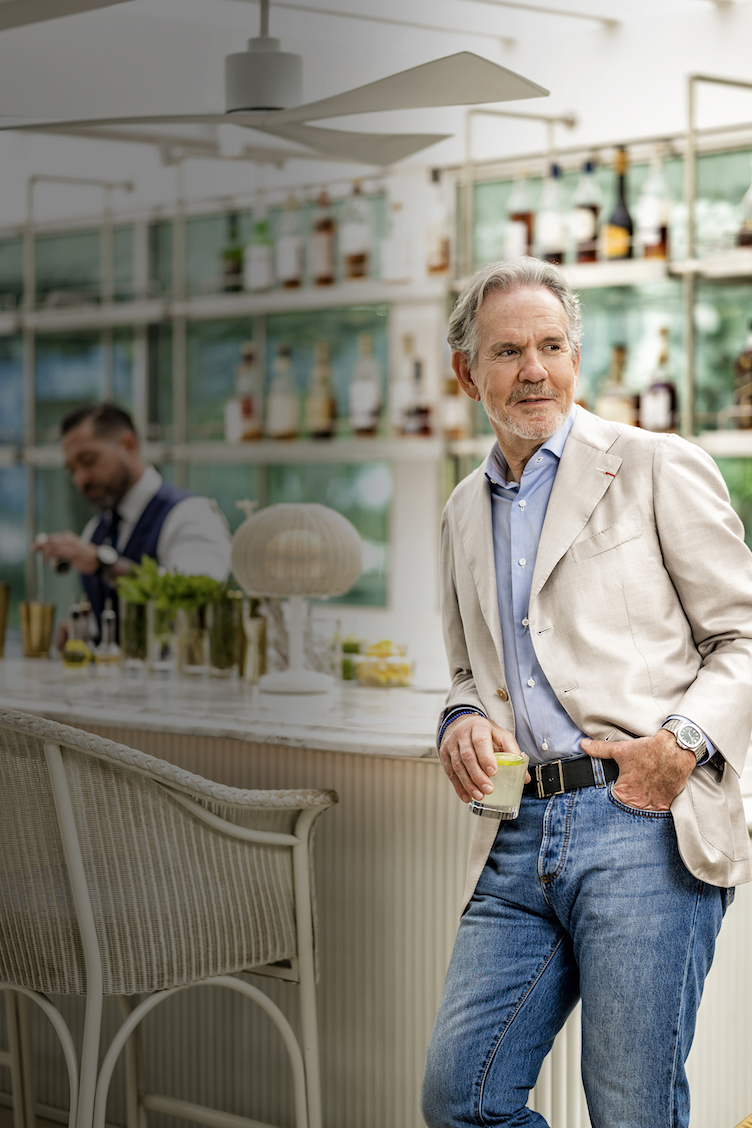 Photo Credit: Nick Garcia
Photo Credit: Nick Garcia
Keller explains that there were several reasons why he would open a restaurant in his former home state, and The Surf Club met all requirements: namely, that it was compelling, dynamic, and historic. He references the now-shuttered TAK Room at Hudson Yards, explaining that said specific project was a generational and historical change on the West Side of New York City, hence the intrigue. There had not been a undertaking built like Hudson Yards since Rockefeller Center in the 1930s, so it was a once-in-a-lifetime opportunity. He continues to reflect, adding, “I think about The French Laundry and the way that property — which was built in the 1880s and became a restaurant in 1978 — helped to shape Yountville. [My friend, Fort Partners founder Nadim Ashi] convinced me to come to Florida to see The Surf Club because it was a monumental project with the same sentiments.”
There’s also that said history involves Frank Sinatra (though as we now know, Ol’ Blue Eyes wouldn’t have been the only reason for such a choice, as compelling a reason as it might have been). The Surf Club, as created by tire tycoon Harvey Firestone, was a playground for the rich and famous, known for its raucous Rat Pack parties and a slew of famous faces, including Elizabeth Taylor, Gary Cooper, Douglas Fairbanks Jr., Tennessee Williams, and even the Duke and Duchess of Windsor. “It opened on New Year’s Eve in 1930 and became one of the most recognized clubs in the world. There were so many people there — Winston Churchill, Ernest Hemingway, the Rat Pack! And I just fell in love with the property and what it represented, which was a period of history in America that was optimistic. We had just won World War II, America was flourishing and prosperous, and The Surf Club represented that,” he explains.
His vision was to revert the restaurant to its former glory, but with modern touches. The menu would be an elevated take on the classic Continental cuisine of the 50s and 60s, the era he himself grew up in, and align with the popular eateries of that time period, akin to The Colony, The Stork Club, The Brown Derby, and The Blue Fox. Culinary highlights include old-school dishes like Beef Wellington, Lobster Thermidor, Vegetable Louie, Oysters Rockefeller, and of course, his own Regiis Ova caviar.
The design curated by Martin Brudinzki Design Studio, the agency behind the beautiful and whimsical interiors at London hotspots like Annabel’s, Scott’s, and The Ivy, as well as West Hollywood’s new members-only club The Britely, is equally nostalgic thanks to Art Deco–inspired chandeliers, terrazzo flooring, a beaded ceiling, and the hand-painted trompe l’oeil mural by Gary Myatt.
This historical spot is still going strong four years after it first opened, mostly because Keller subscribes to the notion that if it ain’t broke, don’t fix it. And in this case, as is the case with most of his restaurants, consistency is key.
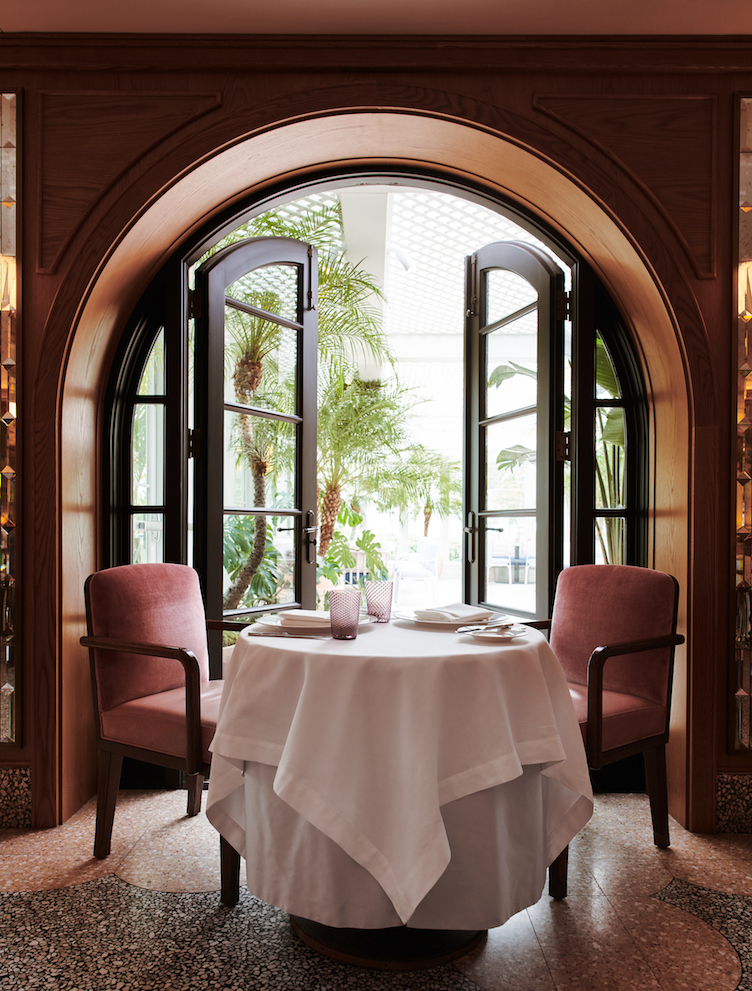 Photo Credit: Adrian Gault
Photo Credit: Adrian Gault
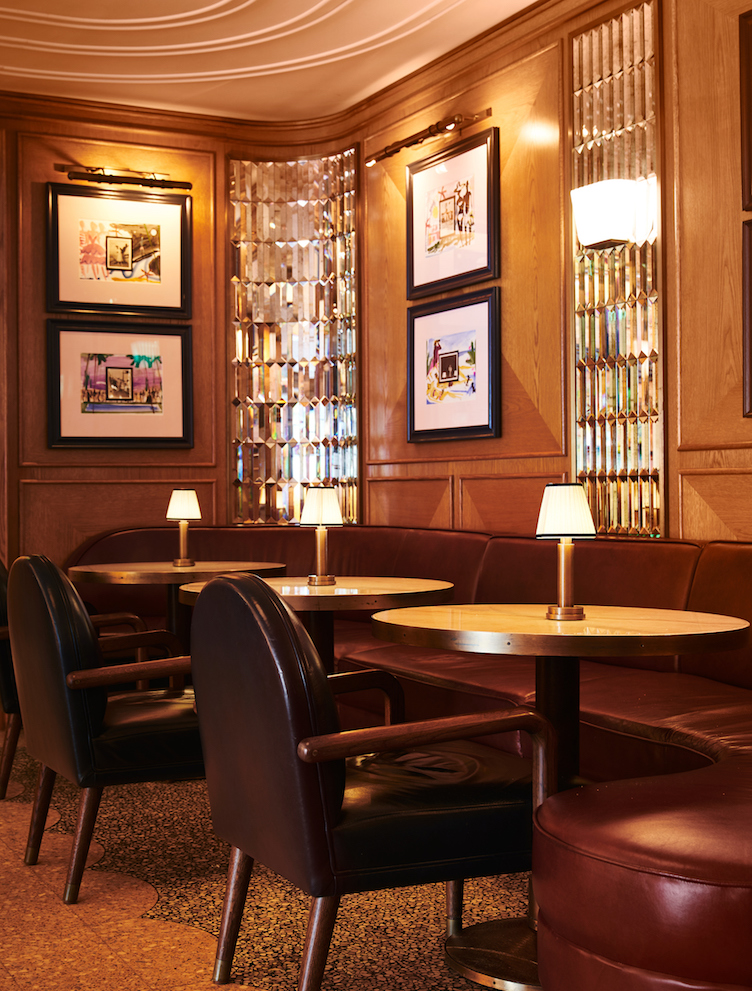 Photo Credit: Adrian Gault
Photo Credit: Adrian Gault
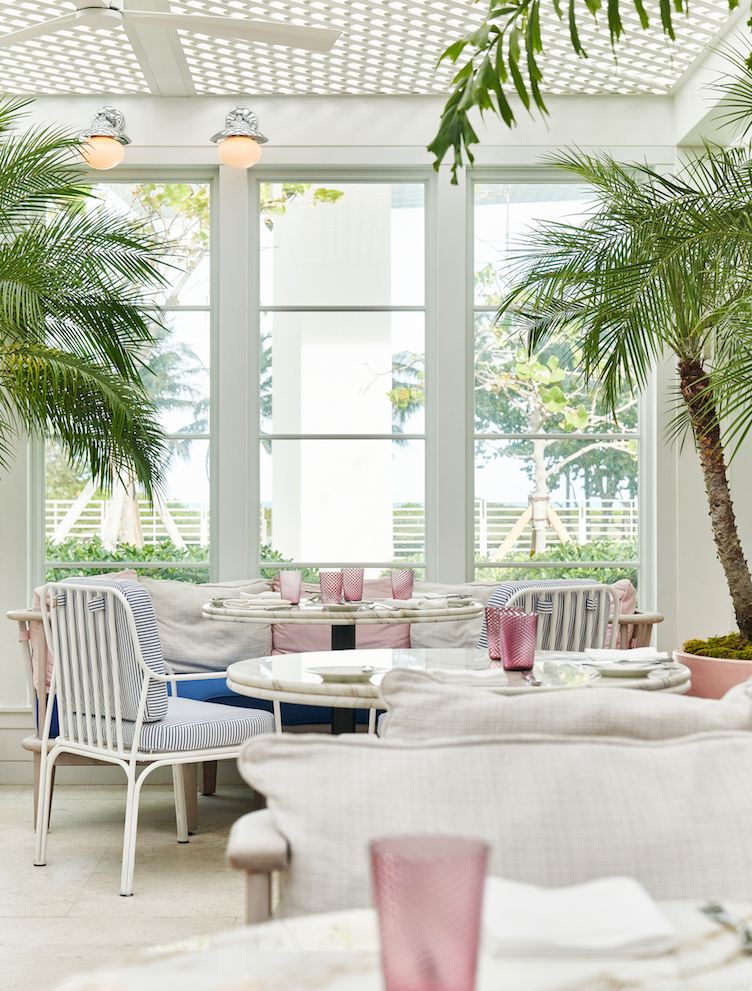 Photo Credit: Adrian Gault
Photo Credit: Adrian Gault
“I’m always conflicted by the question, ‘What’s new?’ I want to answer that we’re finding new things, but at the same time, I’m like, ‘What’s wrong with what we’re doing right now? Does there have to be something new? The French Laundry and Per Se evolve every day, but at The Surf Club Restaurant or Bouchon, say, you look at the historic nature of those restaurants, you look at the history of what was served there during that period, and you try to stay true to the era. The chefs at Bouchon have a little box: Whatever was served at a French bistro back in the day is something that should be served there today. They shouldn’t be doing a riff or a twist. I’m not interested in a twist. I’m interested in making sure that we show integrity in the food that we are preparing, and how it relates to history. When I look at The Surf Club Restaurant, I think, ‘Yes, there are different things that we want to do in winter that are a little different from summer. We want to do a beautiful clam chowder in the wintertime because it’s rich and warming, and in the summertime, we want to do a gazpacho.’ There are different things we want to do, but we also want to make sure that they have a historical connection to The Surf Club.”
The idea of rediscovering this golden era of Miami, and of continuing to rediscover it, brings him back to his childhood. Thomas Wolfe wrote, You Can’t Go Home Again, and Keller might have believed that, too — but now, he is so very glad he chose to return. This restaurant, in particular, takes him back to his youth, the days where he was discovering his likes, discovering his affinity for cooking, discovering what would shape him, and to be able to look back while living in the present, is a beautiful thing.
“I was just starting to become aware of life: I was maybe 10 or 12 when I started working in Continental cuisine restaurants. That was all wrapped up in my childhood, and what more could a person want than to relive part of their childhood?” he agrees, adding, “Plus there were things about that era that were so seductive. The kind of restaurant we are talking about is not just food. The food is as important as any of it, and that’s why the items on the menu have reference points to history. It wasn’t just about the food; it was about the social interaction. The food, social interaction, and music all coming together to create an energy that’s unlike any other. The Surf Club Restaurant really represents what my vision was. It was the perfect location with the perfect concept, and I was excited to do it.”
So did he want to go back home again? No. But now, well, that’s a different story. In the end, there really is no place like home. “With the discovery of The Surf Club, getting to work with my partner, Nadim, and seeing what we’ve been able to do there, I just love the whole thing. I see the resurgence of excitement surrounding Miami. Even before the pandemic, I felt that it was the place to be. I grew up here; [Palm Beach] was a quiet town and there weren’t any great restaurants. There wasn’t a whole lot going on. Miami has once again become one of the most dynamic cities in America. It was lost for some time, but now, it’s back. To see its resurgence, not only as a city that’s well known in America but also around the world, is wonderful. I feel lucky to be a part of that.”
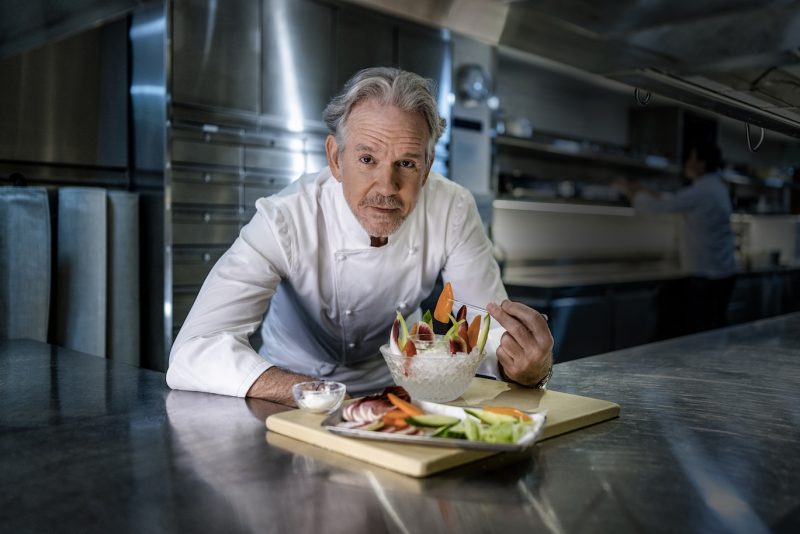 Photo Credit: Nick Garcia
Photo Credit: Nick Garcia
THOMAS KELLER IS IN THE MOOD TO PARTY.
The day of our interview happens to fall on the 18th anniversary of the opening of Per Se, his iconic New York City eatery. It’s also noon on a Thursday so needless to say, this isn’t going to be a hardcore rager.
He did, however, commemorate the occasion (obviously). “I gave a few thoughtful comments about our restaurant, our staff, our alumni; the impact that we have and the opportunity for future impact. And then, you know, we had a glass of champagne,” Keller admits. [For those enquiring minds, the champagne in question was Modicum, a sparkling wine produced by Schramsberg, a joint venture between said winemaking team and the sommeliers at The French Laundry.] There was, of course, cake, because what’s any good celebration without it?
But it’s soon back to work for Keller and co. Work precedes fun, and that’s just the way it must be. This is, after all, part of the recipe to his success. And no matter how you stir it, slice it, or dice it, Keller is absolutely one of the most successful chefs in the world. His accolades are numerous: The Culinary Institute of America’s “Chef of the Year” Award, the James Beard Foundation’s “Outstanding Chef” and “Outstanding Restaurateur” awards, and Michelin Guide’s Chef Mentor Award, among others. In 2001, Time Magazine named him America’s Best Chef. In 2011, he became the first American male chef to be designated a Chevalier of the French Legion of Honor. In 2017, Keller led the team from the United States to win its first-ever gold medal in the Bocuse d’Or, a prestigious biannual competition regarded as the Olympics of the culinary world. For embodying the state’s spirit of innovation, he was inducted into the 2018 California Hall of Fame. In June 2019, Keller became the first U.S. inductee into The Master Chefs of France, the oldest savory chef association in the world. He also holds an honorary doctorate in culinary arts from The Culinary Institute of America.
And his prowess in the world of haute cuisine has, inevitably, led to other ventures, ones that in his wildest dreams he couldn’t have imagined as a young kid just there to keep his mother company in the kitchen. He’s penned six cookbooks, including 2020’s The French Laundry, Per Se; and established an outpost in Yountville named Finesse The Store; Keller Manni Chocolate, a line of bean-to-bar chocolates with Armando Manni; the aforementioned Regiis Ova as well as a dedicated caviar & champagne lounge in Yountville, done in collaboration with Regiis Ova co-founder, Shaoching Bishop; Cup4Cup, a line of gluten-free flour blends and mixes; a brand ambassadorship with Hestan, which includes various cookware lines, including his namesake Thomas Keller Insignia Cookware Collection; a partnership with Cangshan knives; K+T, a collection of silver hardware and cocktail ware for Christofle Silversmiths; a collaboration with Raynaud and design firm Level that led to a collection of white porcelain dinnerware called “Hommage,” featured today at The French Laundry and Per Se; film work as a consultant on projects like Spanglish and Ratatouille; and now, most recently due to his love of golf, designing polos based on his restaurants’ logos with lifestyle brand Peter Millar.
Of the rewards he’s reaped throughout his culinary career, he says, “One of the best things about cooking is that it’s universal. I get to do so many things that I never would have gotten to do, meet so many people, experience so many different things, just because I’m a cook… and everybody has to eat!”
And what a wild ride it has been.
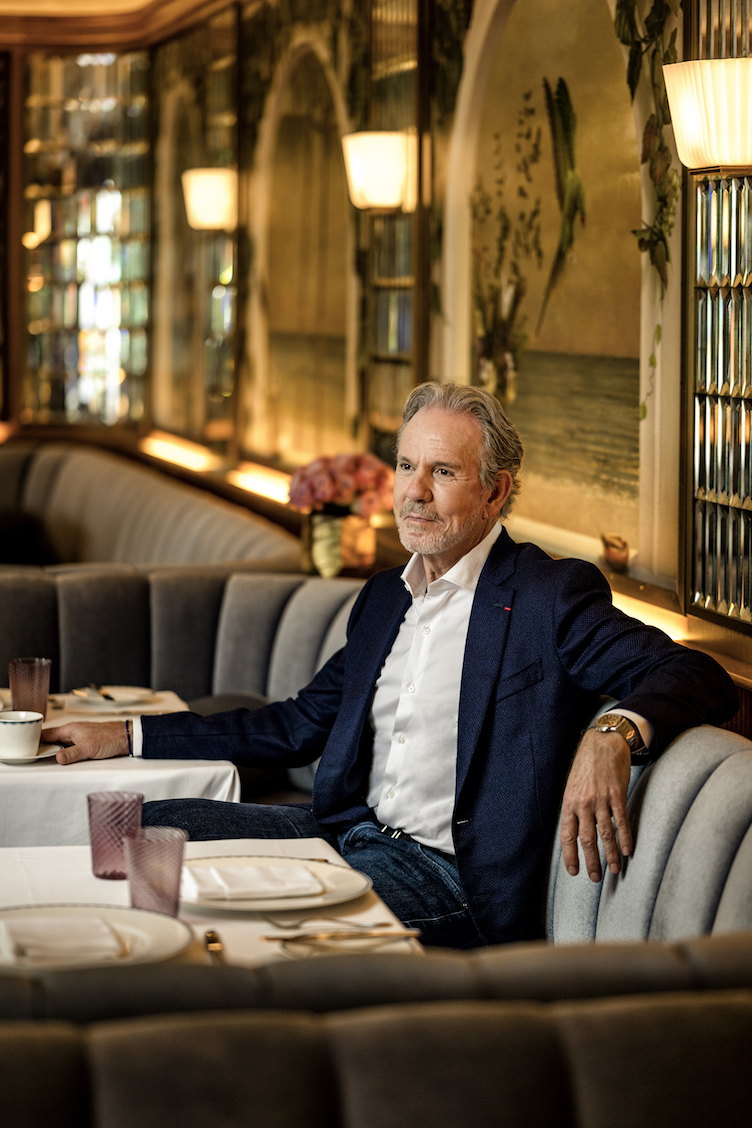 Photo Credit: Nick Garcia
Photo Credit: Nick Garcia
Speaking of rides, well, there’s nothing Keller is looking forward to more imminently than the Formula 1 Crypto.com Miami Grand Prix in May. He’s a huge auto enthusiast with a predilection for BMWs (he currently owns three: a 1978 3201, a 2000 540 station wagon, and a 2014 i8), which he’s loved with a passion that has both preceded and encompassed his career as a master chef. [The French Laundry’s “house cars” are all BMWs as well, which is no coincidence.]
I wonder if he’s ever raced — and the answer is, of course, yes. He confides that he and chef friends Jérôme Bocuse — son of Nouvelle Cuisine pioneer Paul Bocuse, his mentor — and Daniel Boulud all hit tracks in Atlanta and New Orleans to race Ferraris. “I don’t consider myself a racer, but Jérôme did very well at least,” he remembers. “He practiced, he had lessons. Daniel and I would just have fun with [the cars] — “fun” being pretty fast with a Ferrari.” He chuckles, “I have a small amount of car knowledge — just enough to get me into trouble.”
That said, it’s not always a bad thing when these three culinary speed racers get together. In 2008, at the behest of mentor Bocuse, he, Boulud, and Jérôme Bocuse established the Ment’or Foundation, where he currently serves as president. The foundation is devoted to inspiring culinary excellence and preserving the traditions and quality of classic cuisine in America. In January of 2015, as president for the Ment’or Foundation, he led Team USA to a historic silver win in the Bocuse d’Or competition in Lyon, France, realizing Paul Bocuse’s dream of the United States making it to the podium. Two years later, in 2017, Team USA, led by executive sous chef Matthew Peters and commis Harrison Turone of Per Se, won gold.
Keller recalls both moments vividly — the Bocuse d’Or being among the top three honors of his life (along with receiving his Chevalier in the French Legion of Honor in 2011, which was presented by Bocuse, and becoming the first American chef to win three Michelin stars).
After winning silver, he quite clearly remembers standing in Bocuse’s Lyon, kitchen. “I said, ‘Chef, we’ve done what we said we were going to do. We’ve been promising you for seven years that we’d make it to the podium.’ But it was earning that gold medal that he wanted Team USA to achieve. My biggest concern, as well as Daniel’s and Jérôme’s, was, Are we going to be able to do this while Paul is alive? It always makes me cry when I think about him.”
In 2017, a year before Bocuse’s death, Keller went to see his mentor and gave him the American flag he had been wearing around his own neck. “I said, ‘We’re coming back with gold on Thursday.’ Well, on Thursday, we came back and what did Paul have around his neck? The American flag. It was an emotional moment for all of us.”
Ironically, though he goes big or goes home for Team USA, when it comes to the subject of expanding his brand — the personality-driven part of his brand, which is — Per Se and The French Laundry — another American eatery is not an option. “There’s a very slight chance I would even do another fine dining restaurant in the genre of The French Laundry and Per Se. If it did happen, it wouldn’t happen in this country. We have two of the most recognized restaurants in America — two of only 135 three-Michelin-star restaurants in the world — and to have another restaurant like that in America would be a disservice to the brand,” he says, noting, “If I decided to open in Paris or London, that would be something, but honestly, as exciting and seductive as opening a new restaurant can be, running a new restaurant is a lot of work, and for a long time. I’m at an age now where opening a restaurant like that — which takes two to three years to build and then to open and operate for 10 or 15 years — is a huge commitment that I’m not sure I would make.”
Even so, he’s always open to new opportunities, whatever they may be, and will go where the wind takes him. Or where his golf clubs take him, more likely.
“One of my current goals is to get a hole in one. I came close the other day,” he confides with a laugh before adding, “If you have courage and confidence in yourself, then most of the time you’re going to be fine. Golf is the perfect example of that. Confidence and courage are such an important part of being a good golfer. If you don’t have the confidence to hit the ball, then you’re not going to hit it. If you don’t have the courage to step up and follow through, it’s just not going to be a good shot.”
But if you take your shot, and keep trying, you end up with an empire. And while that might not be a hole in one, no one could ever dispute that the result is a massive win all the same — whether or not Frank Sinatra is involved.
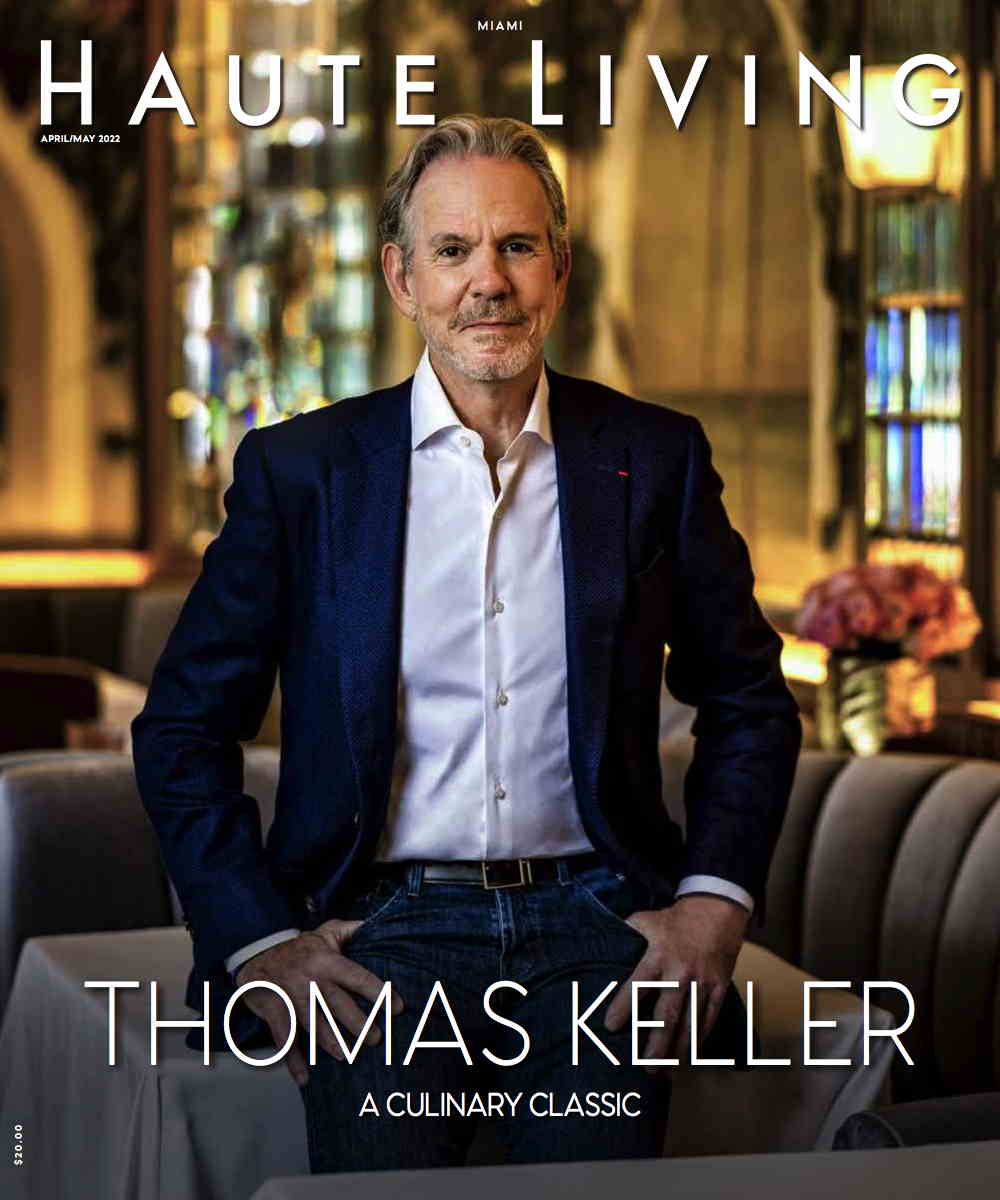 Photo Credit: Nick Garcia
Photo Credit: Nick Garcia

